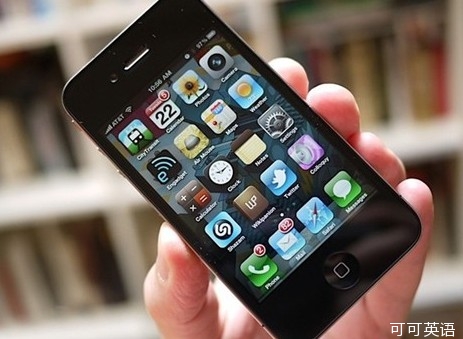
Being in fourth place in the worldвҖҷs hottest technology market turns out not to be a winning proposition. But is third much better? And might even second place become a less comfortable spot to be in?
дәӢе®һиҜҒжҳҺпјҢеңЁе…ЁзҗғжңҖзҒ«зғӯзҡ„科жҠҖеёӮеңәеҗҚеҲ—第еӣӣдёҚз®—з«ҷзЁіи„ҡи·ҹгҖӮ然иҖҢпјҢйҡҫйҒ“第дёүеҗҚе°ұдјҡеҘҪеҫ—еӨҡпјҹжңүжІЎжңүеҸҜиғҪиҝһ第дәҢеҗҚд№ҹдјҡеҸҳеҫ—дёҚйӮЈд№ҲиҲ’жңҚпјҹ
Those are the inevitable questions prompted by the news this week that BlackBerry is ready to throw in the towel. As with all giant markets, it is tempting to think there is room for several players, some of them thriving on small market shares with niche strategies.
д»ҘдёҠжҳҜжңҖиҝ‘й»‘иҺ“(BlackBerry)еҮҶеӨҮи®Өиҫ“зҡ„ж–°й—»дј еҮәеҗҺдёҚеҸҜйҒҝе…Қдјҡеј•еҸ‘зҡ„з–‘й—®гҖӮдёҺжүҖжңү规模巨еӨ§зҡ„еёӮеңәдёҖж ·пјҢдәә们дјҡеҝҚдёҚдҪҸи®ӨдёәеёӮеңәжңүи¶іеӨҹз©әй—ҙе®№зәіеӨҡдёӘзҺ©е®¶пјҢе…¶дёӯдёҖдәӣеҖҹеҠ©е°Ҹдј—жҲҳз•Ҙе’ҢеҫҲе°Ҹзҡ„еёӮеңәд»ҪйўқпјҢеҸ‘еұ•еҫ—ж¬Јж¬Јеҗ‘иҚЈгҖӮ
But the competitiveness of technology ecosystems depends on their relative, not absolute, scale. Some 80 per cent of handsets shipped in the second quarter ran on Android, according to the latest figures from IDC. Even if many of those are low-end devices and incompatibility between them continues to make life hard for developers, the Android ecosystem is starting to exert a powerful pull.
然иҖҢ科жҠҖз”ҹжҖҒзі»з»ҹзҡ„з«һдәүеҠӣеҸ–еҶідәҺзӣёеҜ№иҖҢдёҚжҳҜз»қеҜ№и§„жЁЎгҖӮж №жҚ®IDCзҡ„жңҖж–°ж•°жҚ®пјҢдәҢеӯЈеәҰеҮәиҙ§зҡ„жүӢжңәдёӯеӨ§зәҰ80%е®үиЈ…зҡ„жҳҜе®үеҚ“(Android)зі»з»ҹгҖӮе°ұз®—иҝҷдәӣжүӢжңәдёӯи®ёеӨҡеҸӘжҳҜдҪҺз«ҜжүӢжңәпјҢжүӢжңәд№Ӣй—ҙзҡ„дёҚе…је®№жҖ§з»§з»ӯд»ӨејҖеҸ‘иҖ…еӨҙз–јпјҢдҪҶе®үеҚ“зҡ„з”ҹжҖҒзі»з»ҹе·ІејҖе§Ӣдә§з”ҹејәеӨ§еҗёеј•еҠӣгҖӮ
It doesnвҖҷt matter, for instance, that BlackBerry is still selling as many handsets as Apple did when it launched the App Store вҖ“ a time when Apple was the focus of the entire mobile development world. Mindshare among consumers and developers is all. On that measure, BlackBerry lost a long time ago.
жҜ”еҰӮиҜҙпјҢй»‘иҺ“зҺ°еңЁжүӢжңәй”Җе”®йҮҸд»Қ然е’ҢиӢ№жһң(Apple)еҲҡжҺЁеҮәеә”з”Ёе•Ҷеә—(App Store)ж—¶пјҲеҪ“ж—¶иӢ№жһңжҳҜж•ҙдёӘ移еҠЁејҖеҸ‘дё–з•Ңе…іжіЁзҡ„з„ҰзӮ№пјүдёҖж ·пјҢдҪҶжҳҜиҝҷж №жң¬дёҚйҮҚиҰҒгҖӮеңЁж¶Ҳиҙ№иҖ…е’ҢејҖеҸ‘иҖ…зҡ„ж„ҸиҜҶдёӯеҚ жҚ®зҡ„вҖңе“ҒзүҢеҪұе“ҚеҠӣд»ҪйўқвҖқжүҚжҳҜдёҖеҲҮгҖӮд»ҘиҝҷдёӘж ҮеҮҶиЎЎйҮҸпјҢй»‘иҺ“ж—©е°ұиҫ“дәҶгҖӮ
Like the cartoon Road Runner going off the edge of a cliff, the Canadian company has been spinning its legs without visible means of support for some time. Its subscriber base peaked less than a year ago, but its competitiveness had eroded long before that.
жӯЈеҰӮеҠЁз”»гҖҠе“”е“”йёҹе’ҢеӨ§з¬ЁзӢјгҖӢдёӯеӨ§з¬ЁзӢјжҖҖе°”и·‘еҮәжӮ¬еҙ–зҡ„ж ·еӯҗпјҢиҝҷ家еҠ жӢҝеӨ§е…¬еҸёеңЁжІЎжңүд»»дҪ•еҸҜи§Ғж”Ҝж’‘зҡ„жғ…еҶөдёӢеҸҢи…ҝжү“иҪ¬жңүдёҖж®өж—¶й—ҙдәҶгҖӮе…¶з”ЁжҲ·еңЁдёҚеҲ°дёҖе№ҙеүҚиҫҫеҲ°йЎ¶еі°е№¶ејҖе§ӢдёӢи·ҢпјҢиҖҢе…¶з«һдәүеҠӣеҫҲд№…еүҚе°ұе·ІйҒӯеҲ°дҫөиҡҖгҖӮ
With BlackBerry ready to fold, do things get any better for those who are left? Microsoft may draw some comfort from seeing off a rival, but Windows Phone still has less than 4 per cent of the market. Much as mobile operators would like to see an alternative to Android and AppleвҖҷs iOS, the success of a third mobile ecosystem is not ordained.
й»‘иҺ“жү“з®—зҝ»зүҢи®Өиҫ“дәҶпјҢйӮЈдәӣеү©дёӢзҡ„з«һдәүиҖ…ж—ҘеӯҗдјҡеҘҪиҝҮзӮ№д№Ҳпјҹе°‘дәҶдёҖдёӘеҜ№жүӢпјҢеҫ®иҪҜ(Microsoft)еҸҜиғҪдјҡеҫ—еҲ°дәӣи®ёе®Ҫж…°пјҢдҪҶжҳҜWindows Phoneзҡ„еёӮеңәеҚ жңүзҺҮд»Қ然дҪҺдәҺ4%гҖӮе°Ҫ管移еҠЁиҝҗиҗҘе•Ҷд№ҹи®ёеҫҲж„ҝж„ҸзңӢеҲ°еңЁе®үеҚ“е’ҢиӢ№жһң(Apple)е…¬еҸёзҡ„iOSд№ӢеӨ–иҝҳжңүеҸҰдёҖдёӘйҖүжӢ©пјҢ然иҖҢиҝҷ第дёүдёӘ移еҠЁз”ҹжҖҒзі»з»ҹзҡ„жҲҗеҠҹжҳҜжІЎжңүдҝқйҡңзҡ„гҖӮ
The more intriguing question, though, surrounds the iPhone. AppleвҖҷs market share has fallen to around 13 per cent. It has been at more or less this level before, in the down quarters before the launch of new iPhones. But in relative terms, Android has never looked stronger.
дёҚиҝҮпјҢиҝҳжңүдёҖдёӘжӣҙиҖҗдәәеҜ»е‘ізҡ„й—®йўҳпјҢиҝҷдёӘй—®йўҳжҳҜжңүе…іiPhoneзҡ„гҖӮиӢ№жһңзҡ„еёӮеңәд»Ҫйўқе·Із»ҸдёӢи·ҢиҮі13%е·ҰеҸігҖӮеңЁеҸ‘еёғж–°ж¬ҫiPhoneеүҚзҡ„й”Җе”®дҪҺиҝ·еӯЈеәҰпјҢиӢ№жһңзҡ„д»Ҫйўқд№ҹжӣҫжҲ–еӨҡжҲ–е°‘еӨ„дәҺиҝҷдёӘж°ҙе№ігҖӮ然иҖҢзӣёеҜ№жқҘиҜҙпјҢе®үеҚ“зңӢиө·жқҘд»ҺжңӘеғҸд»ҠеӨ©иҝҷж ·ејәеӨ§гҖӮ
On almost every measure that counts, the company that invented the touchscreen smartphone either already has been вҖ“ or soon will be вҖ“ consigned to the number two position. It happened in hardware sales first: having first overtaken Apple nearly two years ago, Samsung shipped more than twice as many handsets as its US rival in the most recent quarter, according to IDC.
еңЁеҮ д№ҺжҜҸдёӘйҮҚиҰҒзҡ„жҢҮж ҮдёҠпјҢеҸ‘жҳҺдәҶи§Ұж‘ёеұҸжҷәиғҪжүӢжңәзҡ„иӢ№жһңиҰҒд№Ҳе·Із»ҸеұҲеұ…第дәҢпјҢиҰҒд№ҲеҚіе°Ҷи®©еҮәеӨҙжҠҠдәӨжӨ…гҖӮиҝҷз§Қжғ…еҶөйҰ–е…ҲеҸ‘з”ҹеңЁзЎ¬д»¶й”Җе”®ж–№йқўпјҡж №жҚ®IDCзҡ„ж•°жҚ®пјҢеңЁе·®дёҚеӨҡдёӨе№ҙеүҚи¶…иҝҮиӢ№жһңд№ӢеҗҺпјҢдёүжҳҹжңҖиҝ‘дёҖеӯЈеәҰжүӢжңәеҮәиҙ§йҮҸи¶…иҝҮе…¶зҫҺеӣҪз«һдәүеҜ№жүӢзҡ„дёӨеҖҚгҖӮ
It is now happening in apps. As we reported two months ago, Apple is on the verge of giving up its lead in app downloads. The average Android customer may use fewer apps, but there are a lot more of them and that is starting to turn the heads of developers.
еҗҢж ·зҡ„ж•…дәӢеҰӮд»ҠжӯЈеңЁеә”з”ЁйўҶеҹҹдёҠжј”гҖӮжӯЈеҰӮжҲ‘们дёӨдёӘжңҲеүҚжүҖжҠҘйҒ“зҡ„пјҢиӢ№жһңеҚіе°ҶдёўжҺүе…¶еңЁеә”з”ЁдёӢиҪҪйҮҸж–№йқўзҡ„еӨҙеҸ·жҺ’еҗҚгҖӮиҷҪ然е®үеҚ“йЎҫе®ўдёҖиҲ¬дҪҝз”Ёзҡ„еә”з”Ёж•°йҮҸеҸҜиғҪиҰҒе°‘дёҖдәӣпјҢдҪҶжҳҜе®үеҚ“з”ЁжҲ·дәәж•°еӨҡеҫ—еӨҡпјҢиҝҷдёҖзӮ№жӯЈејҖе§Ӣд»ӨејҖеҸ‘иҖ…иҪ¬еҗ‘гҖӮ
The next significant bragging right that Apple is in danger of losing is its leading share of smartphone industry profits. Apple almost certainly still leads Samsung in this department. The profit margin on the iPhone comfortably exceeds its margin on other products. But unless the expected launch of a new, lower-priced iPhone can stop the rot, Apple will probably be overwhelmed in the profit stakes by the sheer volumes of its arch-rival, as growth shifts to more price sensitive markets.
дёӢдёҖдёӘиӢ№жһңеҺҹжң¬еј•д»ҘдёәиұӘпјҢзҺ°еңЁеҚҙеҸҜиғҪдёўеӨұзҡ„йҮҚиҰҒйҳөең°жҳҜе…¶еңЁжҷәиғҪжүӢжңәиЎҢдёҡеұ…йўҶе…Ҳең°дҪҚзҡ„еҲ©ж¶Ұд»ҪйўқгҖӮеңЁиҝҷж–№йқўпјҢиӢ№жһңеҮ д№ҺиӮҜе®ҡд»ҚиғңиҝҮдёүжҳҹдёҖзӯ№гҖӮиӢ№жһңеңЁiPhoneдёҠзҡ„еҲ©ж¶ҰзҺҮжҜ«ж— жӮ¬еҝөең°и¶…еҮәдәҶе…¶еңЁе…¶д»–дә§е“ҒдёҠзҡ„еҲ©ж¶ҰзҺҮгҖӮдҪҶжҳҜпјҢйҷӨйқһйў„жңҹе°ҶиҰҒеҸ‘еёғзҡ„ж–°еһӢдҪҺд»·iPhoneйҳ»жӯўйЎҫе®ўжөҒеӨұпјҢйҡҸзқҖеўһй•ҝйҮҚеҝғиҪ¬еҗ‘жӣҙдёәд»·ж јж•Ҹж„ҹзҡ„еёӮеңәпјҢиӢ№жһңеңЁеҲ©ж¶Ұд»ҪйўқдёҠеҫҲеҸҜиғҪиў«е…¶еҠІж•Ңзҡ„еәһеӨ§еҮәиҙ§йҮҸжү“иҙҘгҖӮ
There is one important measure on which Apple still has an edge: the money that app developers and content producers earn on its mobile platform. That still makes the iOS a powerful draw for developers and guarantees Apple the all-important premium experiences that have kept buyers coming back for more when upgrade time comes around. If the revamped iOS7 interface is a hit with users and Apple continues to create a richer and more profitable environment for developers, then the core propositions on which the iPhone empire was built will remain in place.
иӢ№жһңиҝҳжңүдёҖйЎ№йҮҚиҰҒзҡ„жҢҮж Үд»ҚеӨ„дәҺйўҶе…Ҳең°дҪҚпјҡеә”з”ЁејҖеҸ‘иҖ…е’ҢеҶ…е®№дҫӣеә”е•ҶеңЁе…¶з§»еҠЁе№іеҸ°дёҠзҡ„зӣҲеҲ©гҖӮиҝҷдёҖзӮ№д»ӨiOSеҜ№ејҖеҸ‘иҖ…д»Қ然жһҒе…·еҗёеј•еҠӣпјҢ并且жҳҜиӢ№жһңиҮіе…ійҮҚиҰҒзҡ„еҮәиүІз”ЁжҲ·дҪ“йӘҢзҡ„дҝқйҡңпјҢжӯЈжҳҜиҝҷз§ҚеҮәиүІдҪ“йӘҢдҪҝеҫ—е®ўжҲ·еңЁиӢ№жһңдә§е“ҒеҚҮзә§жҚўд»Јж—¶еҶҚеәҰжҺҸй’ұиҙӯд№°гҖӮеҰӮжһң焕然дёҖж–°зҡ„iOS 7з•ҢйқўиғҪеӨҹдёҖзӮ®жү“е“ҚпјҢиҖҢиӢ№жһң继з»ӯдёәејҖеҸ‘иҖ…е»әз«ӢдёҖдёӘеҠҹиғҪжӣҙдё°еҜҢгҖҒжӣҙжҳ“дәҺзӣҲеҲ©зҡ„зҺҜеўғпјҢйӮЈд№ҲиӢ№жһңиө–д»Ҙжү“йҖ iPhoneеёқеӣҪзҡ„ж ёеҝғз«һдәүеҠӣе°Ҷдҫқ然еӯҳеңЁгҖӮ
But volume matters. And when it comes to the numbers, AndroidвҖҷs momentum is now impossible to ignore.
然иҖҢпјҢеҮәиҙ§йҮҸеҚҒеҲҶйҮҚиҰҒгҖӮиҖҢе°ұж•°йҮҸиҖҢиЁҖпјҢе®үеҚ“зҡ„еҸ‘еұ•еҠҝеӨҙж— жі•еҝҪи§ҶгҖӮ
This has left Tim Cook, AppleвҖҷs chief executive, in a difficult position. If he canвҖҷt convince iOS developers that he will build a bigger marketplace for them, their attention will continue to drift to Android. But the lower-priced iPhone needed to expand the iOS universe will dilute overall profit margins and may even cannibalise sales of the high-end devices.
иҝҷд»ӨиӢ№жһңйҰ–еёӯжү§иЎҢе®ҳи’Ӯе§Ҷ•еә“е…Ӣ(Tim Cook)йҷ·е…ҘжЈҳжүӢеӨ„еўғгҖӮеҰӮжһңд»–ж— жі•иҜҙжңҚiOSејҖеҸ‘иҖ…зӣёдҝЎд»–е°Ҷдёә他们жү“йҖ дёҖдёӘжӣҙеӨ§зҡ„еёӮеңәпјҢ他们зҡ„жіЁж„ҸеҠӣе°Ҷ继з»ӯиҪ¬еҗ‘е®үеҚ“гҖӮ然иҖҢжү©еұ•iOSз”ҹжҖҒзі»з»ҹжүҖйңҖзҡ„дҪҺд»·iPhoneдјҡзЁҖйҮҠж•ҙдҪ“еҲ©ж¶ҰзҺҮпјҢз”ҡиҮіеҸҜиғҪиҡ•йЈҹй«ҳз«Ҝдә§е“Ғзҡ„й”Җе”®гҖӮ
Logic suggests that Wall Street should get over its fixation on AppleвҖҷs slipping profit margin. Grabbing a bigger share of the overall profits is what matters now. A business model in transition, though, is guaranteed to unnerve investors. With activist investor Carl Icahn also now breathing down his neck, Mr CookвҖҷs job is not about to get any easier.
жҢүз…§йҖ»иҫ‘пјҢеҚҺе°”иЎ—еә”иҜҘе…ӢжңҚеҜ№иӢ№жһңдёҚж–ӯдёӢж»‘зҡ„еҲ©ж¶ҰзҺҮзҡ„иҝ·жҒӢгҖӮзӣ®еүҚпјҢйҮҚиҰҒзҡ„жҳҜдәүеӨәжӣҙеӨ§д»Ҫйўқзҡ„жҖ»дҪ“еҲ©ж¶ҰгҖӮжңүз»ҙжқғжҠ•иө„иҖ…еҚЎе°”•дјҠеҚЎжҒ©(Carl Icahn)иҝҷж ·зҡ„дәәж—¶еҲ»зӣҜзқҖпјҢеә“е…Ӣзҡ„е·ҘдҪңдёҚдјҡиҪ»жқҫгҖӮ


